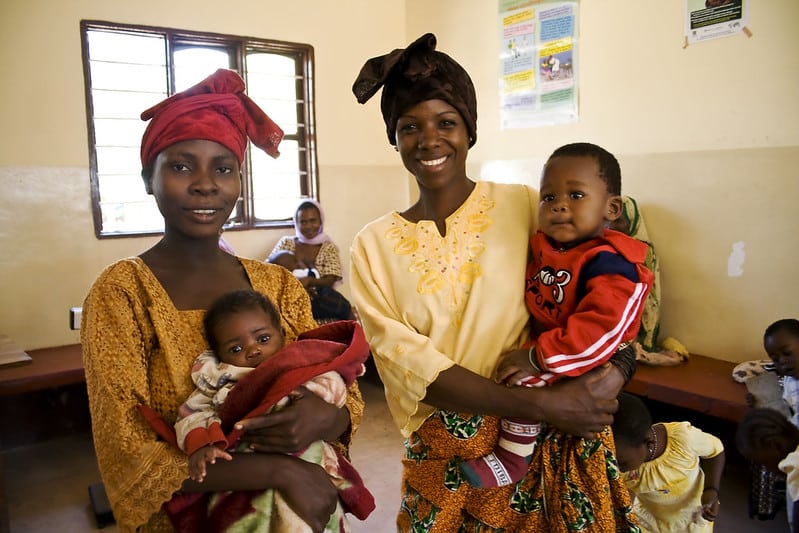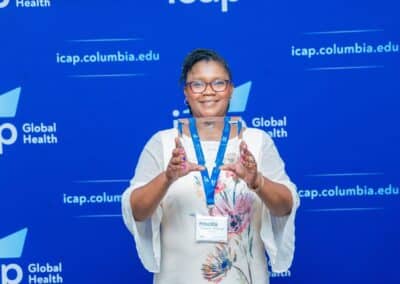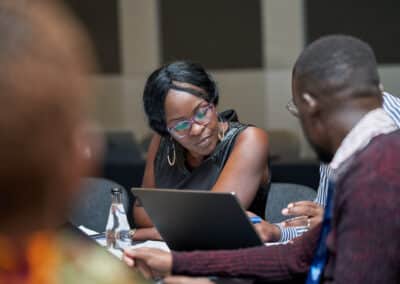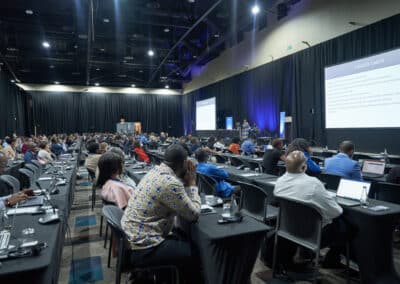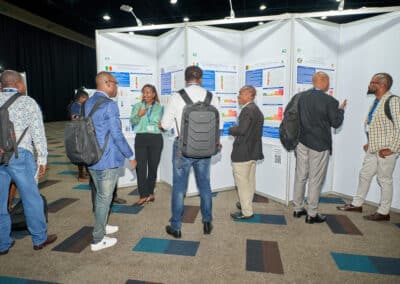The CQUIN learning network is hosting a series of multi-country workshops focused on the use of differentiated service delivery (DSD) approaches to enhance integrated maternal and child health (MCH) services for women living with HIV and their children. The objective is to identify existing DSD models, define best practices and models for MCH services, understand gaps, and highlight the need for more innovation and data.
In 2018, data on prevention of mother to child transmission (PMTCT) indicated a global slowdown towards attainment of HIV elimination targets. A plateau in the coverage of antiretroviral therapy (ART) amongst pregnant and breastfeeding women living with HIV contributed to 160,000 new HIV infections in children, according to a UNAIDS report, highlighting the need to optimize service delivery for this group.
Though the World Health Organization (WHO) has endorsed the use of DSD models for pregnant and breastfeeding women, very few countries are implementing these models, notes Fatima Tsiouris, MS, deputy director, Human Resources for Health Development at ICAP. ICAP’s work supporting integrated programs for PMTCT highlights the need for a differentiated lifecycle approach to offering women family health services, she says.
“It is critical to begin discussions on how to incorporate differentiated approaches to treatment, such as flexible program design and multi-month ART dispensing, into services for HIV-positive women nearing delivery who are at a heightened risk for lost-to-follow-up.”
“CQUIN’s Differentiated MCH workshop series presents an opportunity for countries to review their MCH and PMTCT data, successes and challenges through a DSD lens, sharing case studies and fostering intensive south-to-south consultation,”said Peter Preko, Mb.CHB, CQUIN project director. The workshops will enable CQUIN country teams to identify and define optimal MCH models for women living with HIV, including nonpregnant women in DSD treatment models, women starting ART during pregnancy, women on ART who become pregnant, and post-partum women.
The initial three-day virtual workshop will take place in October with participants from selected CQUIN member countries and will include HIV and MCH representatives from Ministries of Health, representatives from WHO, UNICEF, UNAIDS, the International AIDS Society, the U.S. Centers for Disease Control and Prevention (CDC), recipients of care and diverse other stakeholders.
“Many countries have fallen behind in the HIV elimination targets for this demographic, and the workshop is an opportunity to bring together HIV and MCH focal persons, DSD experts and recipients of care, breaking down barriers to find solutions,” said Tsiouris.


